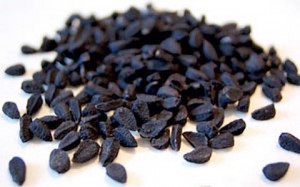By James Hartley
Guest writer for Wake Up World
Black Cumin seeds are one of the most potent superfoods on the planet and the oil that can be derived from them is considered one of the most illustrious essential oils that nature has to offer. Overflowing with health-boosting properties, the oil brings about an almost unrivaled increase in health and wellness. Astonishingly, the oil was also discovered in the tombs of Pharaohs such as Tutankhamun.
For Thousands of years the plant, Nigella sativa, its seeds and the oil which can be made from them, have been held in extremely high regard; The Islamic prophet Muhammad declared that black cumin seeds can cure anything except death! A bold statement indeed, however when we delve further into the medicinal benefits possessed by the seeds of this amazing plant you may begin to realize that the hype does not come without some very strong medicinal backing.
[pro_ad_display_adzone id=”110028″]
Black Cumin Seed Oil’s Incredible Benefits
There are hundreds of incredible health-giving properties within black seed oil, many still undiscovered by modern day science, and the synergy of all these elements working together is what produces the brilliant almost miracle like healing energies. Some of the main components include: crystalline nigellone, thymoquinone, beta sitosterol, myristic acid, palmitic acid, palmitoleic acid, stearic acid, oleic acid, linoleic acid, linolenic acid, arachidonic acid, protein, vitamin B1, vitamin B2, vitamin B3, folic acid, calcium, iron, copper, zinc, and phosphorous.
In addition to this black seed oil also contains alpha-linolenic acid, the anti-inflammatory omega-3 fatty acid and linoleic acid the omega-6 fatty acid. Whilst widespread beliefs would have you believe that fish are the best source of omega oils, seed and plant sources also contain the beneficial oils.
Over 100 hundred studies have proven that the elements within black cumin seeds help fight all sorts of diseases by boosting the production of bone marrow and immune cells.
A cancer fighter worthy of note, even effective against some of the most aggressive forms of cancer. Another area where black seed oil shines is in the treatment of diseases related to the respiratory system such as asthma, flu, bronchitis etc.
One of the compounds in black-seed oil beto-sitosterol helps repair tumors and has been proven as very effective in treating tumors of the liver, abdomen and eyes.
In addition to the above, black seed oil has been proven to help treat the following problems:
- headaches
- toothaches
- nasal congestion
- colds and flus
- digestive and gastrointestinal problems
- hair and skin problems
- allergies
- diabetes
- insomnia
In summary it appears the blessed black-seed oil can be used as a go-to treatment for almost any ailment, small or serious.
History
[pro_ad_display_adzone id=”110030″]
Used extensively in Ancient Egypt, it was referred to as a Panacea – a remedy for all diseases and evils. Within the tomb of the famous young pharaoh Tutankhamun, which was the most complete tomb ever found, there were discovered a bottle of black seed oil. The presence of this bottle suggests that black seed oil was placed in the tomb in order to imbue the pharaoh with brilliant health in the after-life.
The black cumin oil is also known as the oil of the Pharaohs. It is said that Cleopatra used it as a beauty oil. It was also found in the tomb of Tutankhamun. Dioscorides, a physicist from ancient Greece, used black seeds for headaches, nasal congestion, stomach pain and remove intestinal parasites.
Hippocrates considered black seeds a good remedy for digestive and hepatic disorders.
In ancient times it was used against jaundice. The Romans used the seeds as a substitute for pepper. Ibn Sina, author of the famous medical book “The Canon of Medicine” recommended black seeds to stimulate metabolism and against discouragement and lethargy.
Ancient Egyptian Physicians often used the seeds to treat Pharaohs after their lavish feasts to help calm upset stomachs, headaches, toothaches, colds, and infections. The Egyptian Queen Nefertiti, renowned for her stunning beauty, used black seed oil, most probably due to its abilities to strengthen and bring life to hair and nails.
In modern day Germany, black seed oil is available as a prescription by the pharmaceutical companies for a variety of ailments. But for some reason this has not extended to a higher proportion of the areas on earth.
This forgotten wonder has beneficial effects on all systems in the body, similar to Korean Ginseng.
The recommended dosage is to take 1 teaspoon per day until symptoms disappear.
Black cumin seed oil can be found online for a reasonable price considering the above information. A bottle will cost around £10 ($16) however please note that nigella sativa is the plant name you should have listed on the product information in order to confirm the above medicinal properties. As with anything I recommend buying organic to avoid any of those nasty chemicals and to retain as much nutritional density as possible.
Article Sources
- homeremediesweb.com/black-seed-oil-health-benefits
- greenprophet.com/2010/10/islam-black-seed
- livestrong.com/article/325309-nutritional-value-of-black-seed
- naturalnews.com/030800_cumin_seeds_health
Previous article by James
About the Author
James Hartley is a passionate whole foods and holistic healing enthusiast who encourages others to empower themselves with the knowledge of Nature’s greatest gifts, by sharing his research through his blog and online indexing collective.
A spiritualist who from an early age awakened to the dualistic nature of the world we live in; filled with an endless array of toxins but conversely a plethora of nutritious and healing foods that Mother Earth has to offer which in essence he believes hold the keys to immortality and peak health.
James’ online presence is here to serve everyone as a reminder that not only are there an almost infinite amount of natural foods that can be consumed to aid both prevention and treatment of any given problem but that with the correct diet we can completely revolutionise and energise our lives.
Connect with James on Facebook.
[pro_ad_display_adzone id=”110027″]







